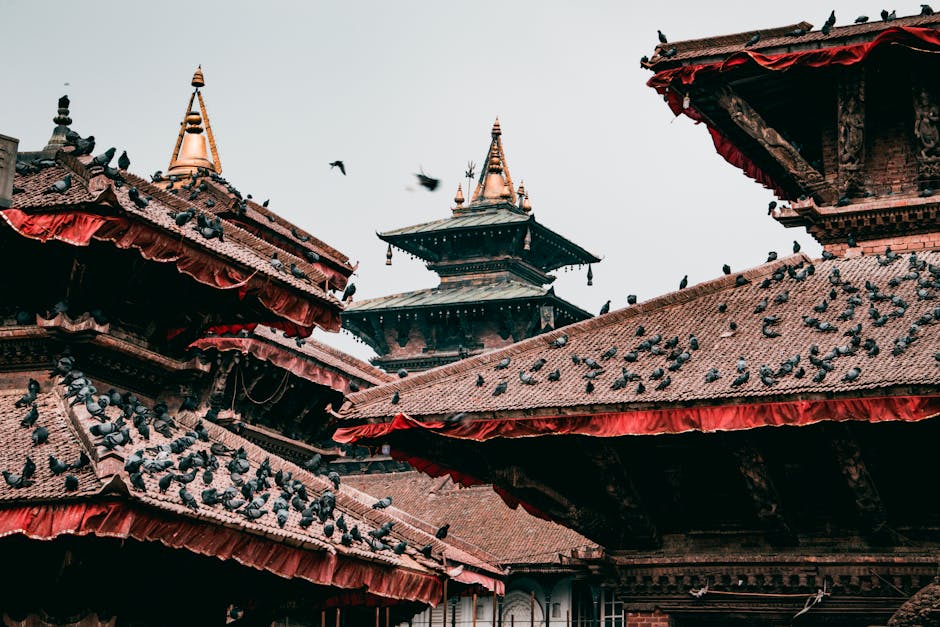


 Nepal
Nepal
Nepal is an incredible travel destination, offering a unique blend of culture, adventure, and natural beauty. From the majestic Himalayan Mountains to the lush jungles of the Terai region, Nepal has something for everyone. The country is home to eight of the world’s ten highest mountains, including Mount Everest, and offers some of the best trekking and mountaineering opportunities in the world. For those looking for a more relaxed experience, Nepal also offers stunning landscapes, ancient temples and monasteries, vibrant cities, and friendly locals. Whether you’re looking for an adrenaline-filled adventure or a peaceful retreat, Nepal is sure to provide an unforgettable experience.
Activities: Hiking, Camping, Mountain biking, Rafting, Safari
Landscapes: Islands, Beaches, Forests, Woodlands, Mountains, Waterfalls, Rivers, Lakes, Canyons, Glaciers, Caves
Topics: Nature, Wildlife, Food, History, Festivals, Backpacking, Adventure
Is Nepal expensive?
Nepal currency
₨Nepalese rupee (NPR)
Weather in Nepal
Nepal has a diverse climate due to its varied topography. In the low-lying areas, the climate is tropical and subtropical, while in the higher elevations it is temperate. The summer months (April to June) are hot and humid with temperatures ranging from 25°C to 35°C. The monsoon season (July to September) brings heavy rains and cooler temperatures. Winter (December to February) is cold in the mountains, with temperatures dropping below 0°C at night. The Kathmandu Valley experiences milder temperatures during this time, with highs of around 15°C.
- Yearly temperature range: 5°C - 29°C
- Monthly rainfall range: 6mm - 313mm
- Daily sunshine range: 4h - 8h
Traveling Nepal
Air
Nepal has several domestic airlines that offer flights to major cities and tourist destinations throughout the country.
FlightsBus
Buses are the most common form of public transportation in Nepal. They are available from major cities to smaller towns and villages.
Taxi
Taxis are available in most cities and towns in Nepal. They can be hired for short trips or longer journeys.
Train
The Nepal Railways operates a limited number of trains between major cities in Nepal. It is a slow but scenic way to travel.
Hiking
Hiking is a popular way to explore the countryside of Nepal. There are many trails and routes that can be taken, ranging from easy day hikes to multi-day treks.
Is Nepal safe?
Crime
The most common crimes in Nepal are theft, robbery, and assault. Petty theft is the most common crime, with pickpocketing and bag snatching occurring in crowded areas such as markets and tourist sites. Robbery is also a problem, particularly in urban areas. Violent crime is relatively rare but does occur, especially in Kathmandu. Foreigners are sometimes targeted for robbery or assault. It is important to be aware of your surroundings and take precautions to protect yourself and your belongings.
Travel advisory
3.3/5Nepal has a current risk level of 3.3 (out of 5). We advise: Use some caution when travelling Nepal.Last updated: Thu Mar 23 2023
Health
Health Considerations
Nepal is a developing country and has limited access to medical care. It is important to take precautions against infectious diseases such as malaria, dengue fever, and cholera. Vaccinations are recommended for hepatitis A and B, typhoid, rabies, and Japanese encephalitis. It is also important to drink only bottled or boiled water and avoid eating uncooked food. Mosquito repellent is also recommended.
Travel Insurance
It is highly recommended to purchase travel insurance before traveling to Nepal in case of any medical emergencies.
Nepal customs and etiquette
Be Respectful
Be mindful of local customs and traditions, dress modestly, and be respectful when visiting religious sites.
Be Courteous
Greet people with a Namaste (a gesture of respect) and use polite language when speaking to locals.
Be Generous
Offer gifts or donations to local charities or temples as a sign of appreciation for the hospitality you receive.
Be Patient
Nepal is a developing country, so be patient with the slower pace of life and lack of modern amenities.
Be Responsible
Avoid littering, do not buy products made from endangered species, and be mindful of your environmental impact.
TP
Copyright 2023